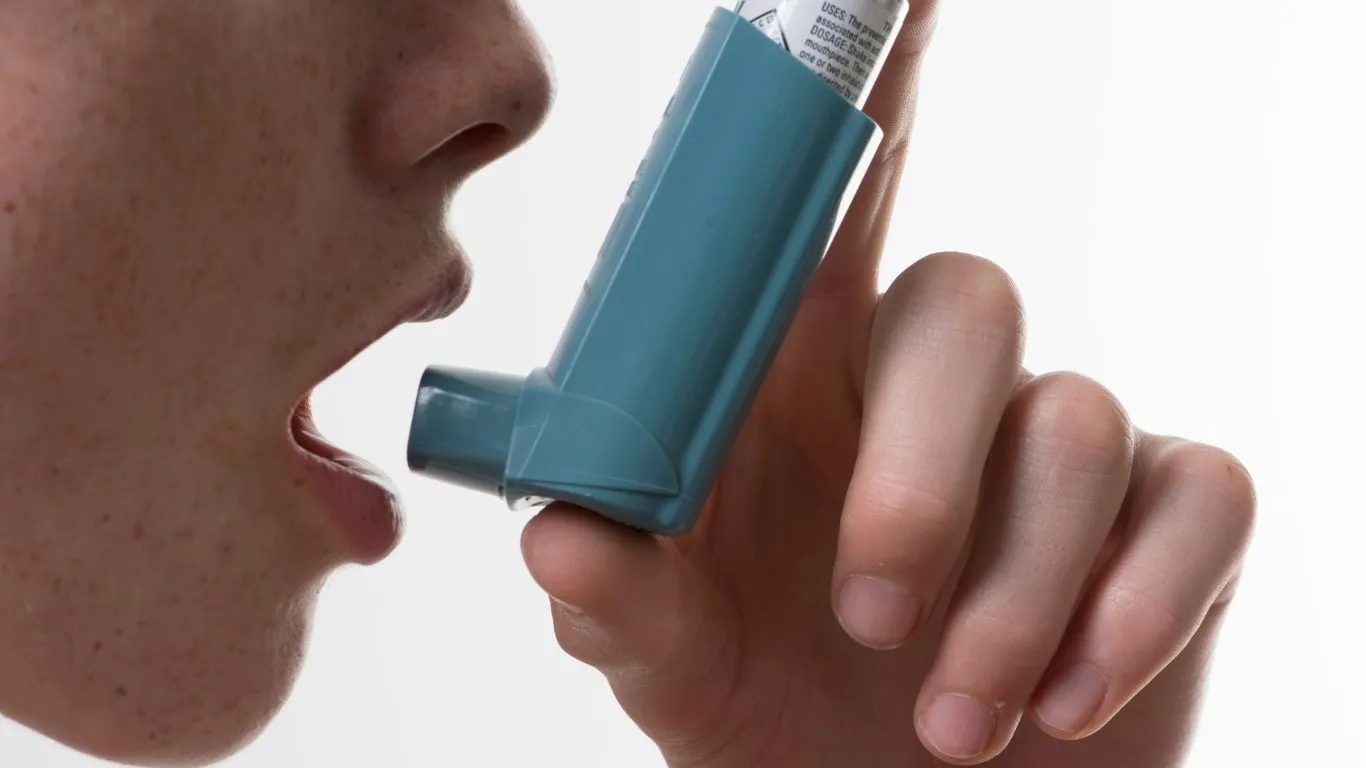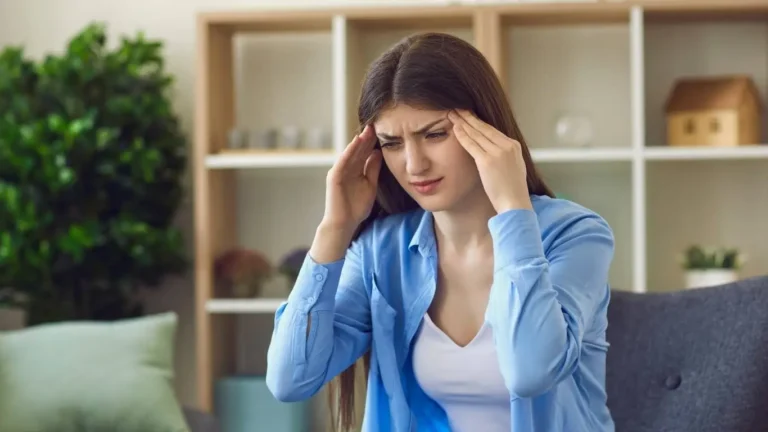Impact of Anxiety on Asthma Symptoms: What You Need to Know
Wondering how anxiety can make asthma symptoms worse? Let’s break down the connection and how to manage both to breathe easier!
Anxiety and Asthma: The Unlikely Connection
You ever get that feeling where your chest tightens up, you can’t breathe properly, and you’re not sure if it’s your asthma acting up or if it’s something else entirely? Turns out, anxiety and asthma aren’t just two separate issues—they’re kind of connected, and this connection might be causing you more trouble than you realize.
In this article, we’re gonna dig into how anxiety impacts asthma symptoms, why that happens, and how you can manage both without making your life feel like one big stress-fest.

Why Anxiety Affects Asthma
So, how does anxiety actually make asthma worse? Well, the connection between anxiety and asthma is a bit like a vicious cycle. Here’s what happens:
When you’re anxious or stressed, your body goes into “fight or flight” mode. This means your heart rate spikes, your muscles tense up, and your breathing becomes faster and shallower. For someone with asthma, this can trigger symptoms like wheezing, tightness in the chest, and even shortness of breath. Essentially, anxiety can set off the same kind of physical responses that an asthma attack would.
But it doesn’t stop there. Anxiety can also lead to hyperventilation—where you’re breathing too quickly, which throws off the balance of oxygen and carbon dioxide in your body. This can trigger asthma flare-ups or even make them worse. So, if you’re already dealing with asthma, anxiety can make it a whole lot harder to breathe.

The Science Behind It: What’s Happening in Your Body?
Okay, let’s break it down a bit more. Your respiratory system and nervous system are closely linked. When anxiety hits, the stress hormones (like cortisol) flood your system, causing inflammation in the airways. This can make your asthma symptoms even more intense.
And if you already have asthma, your airways are more sensitive. So, add anxiety to the mix, and you might notice an increase in symptoms, even if there’s no obvious asthma trigger like cold air or pollen.
How Anxiety Triggers Asthma Symptoms: Real-Life Example
Let’s say you’re in a meeting at work, and suddenly you start feeling overwhelmed. Your heart starts pounding, your thoughts race, and—bam—you notice you’re struggling to breathe. You take a deep breath but it feels like it’s not enough. This is exactly how anxiety can trigger asthma. You might not even realize it’s happening, but that anxiety you’re feeling can lead to a physical reaction in your body that triggers asthma symptoms.

Managing the Impact of Anxiety on Asthma
The good news? There are ways to manage both anxiety and asthma together. Here are some strategies that can help you breathe easier—literally:
1. Practice Deep Breathing
One of the best ways to combat anxiety and prevent it from triggering asthma is through deep, controlled breathing. The goal is to slow down your breath, focusing on inhaling deeply through your nose and exhaling slowly through your mouth. This helps reduce the feeling of breathlessness and calms your nervous system.
2. Use Relaxation Techniques
If you feel anxiety building up, try some relaxation techniques like progressive muscle relaxation or mindfulness meditation. These can help you take control of your stress and stop your body from going into panic mode. The more you practice these techniques, the easier it gets to stay calm during stressful moments.
3. Talk to Your Doctor About Your Asthma Plan
If you notice that anxiety is making your asthma worse, it’s a good idea to talk to your doctor. They can adjust your asthma treatment plan to make sure you’re managing your symptoms effectively, even when anxiety flares up.
4. Exercise Regularly
Exercise can be a great way to reduce both anxiety and asthma symptoms, but it’s important to take it slow. Regular, moderate exercise helps reduce anxiety by releasing endorphins, the “feel-good” hormones. And, if done in a controlled manner, it can actually improve your lung function over time.
5. Keep Your Triggers in Check
Since both anxiety and asthma are linked to triggers, make sure you’re avoiding anything that could set either off. Whether it’s stress, allergens, or irritants like smoke, staying on top of your triggers can help you prevent symptoms from escalating.

When to Seek Professional Help
Sometimes, managing anxiety and asthma on your own just isn’t enough. If you’re noticing that your anxiety is making your asthma harder to manage, or if your asthma symptoms are getting out of control, don’t hesitate to reach out to a healthcare provider. They can work with you to create a treatment plan that addresses both issues simultaneously.
Conclusion: Breathing Easy Again
Anxiety and asthma might seem like they don’t belong in the same conversation, but the truth is, they’re more connected than we might think. Understanding how anxiety can affect asthma symptoms and knowing how to manage both can help you take back control of your health. With the right strategies, you can keep both in check and breathe easier.
Appendices
References
- American Academy of Allergy, Asthma, and Immunology (AAAAI). (2023). The Link Between Asthma and Anxiety. Read Article
- Harvard Health Publishing. (2022). Anxiety and Asthma: How They’re Connected. Read Article
- National Institute of Mental Health (NIMH). (2024). Anxiety Disorders and Your Health. Read Article
FAQs
- Can anxiety really trigger asthma symptoms? Yes! Anxiety can cause physical reactions like shallow breathing, increased heart rate, and muscle tension, all of which can trigger asthma symptoms.
- What are some effective ways to manage both anxiety and asthma? Deep breathing, relaxation techniques, and regular exercise can help manage both anxiety and asthma. Talk to your doctor about adjusting your treatment plan if needed.
- Should I avoid exercise if I have anxiety and asthma? Not at all! Exercise can help reduce anxiety and improve lung function. Just make sure to start slow and talk to your doctor about a safe routine.
- What can I do if I have an asthma attack triggered by anxiety? If anxiety triggers an asthma attack, use your inhaler as prescribed and focus on calming your breath. Deep breathing can help you regain control.
- Is there a way to tell if my asthma symptoms are caused by anxiety? If your asthma symptoms seem to worsen during stressful moments, anxiety may be the cause. Keep track of your symptoms and discuss them with your doctor.
Disclaimer: This article is for informational purposes only and is not intended as medical advice. Always consult with a healthcare provider for any concerns regarding asthma or anxiety management. Individual needs may vary.

Bianca Nala is a compassionate Nurse Practitioner with a strong background in primary and respiratory care. As a health writer for Healthusias.com, she combines her clinical expertise with a talent for clear, relatable storytelling to help readers better understand their health. Bianca focuses on topics like asthma, COPD, chronic cough, and overall lung health, aiming to simplify complex medical topics without losing accuracy. Whether she’s treating patients or writing articles, Bianca is driven by a single goal: making quality healthcare knowledge accessible to everyone.







